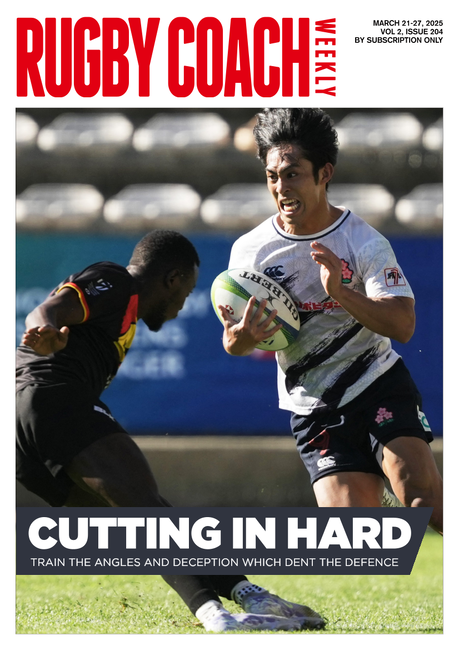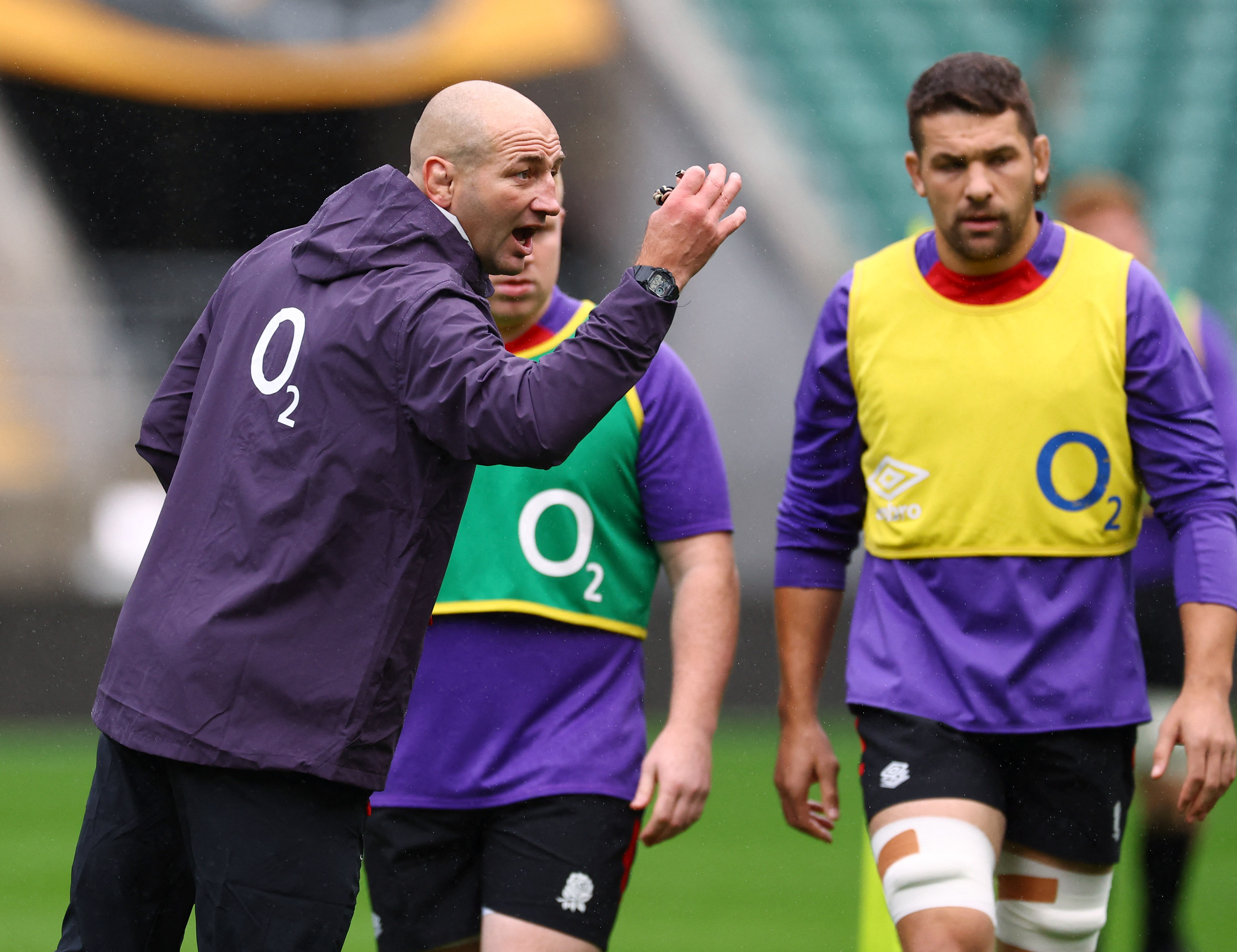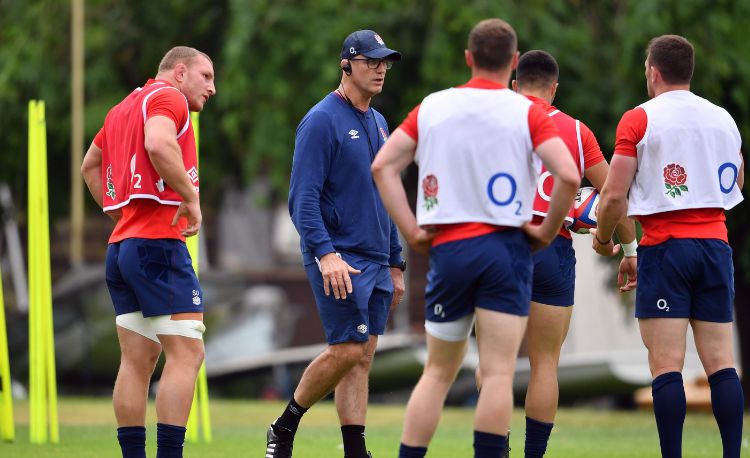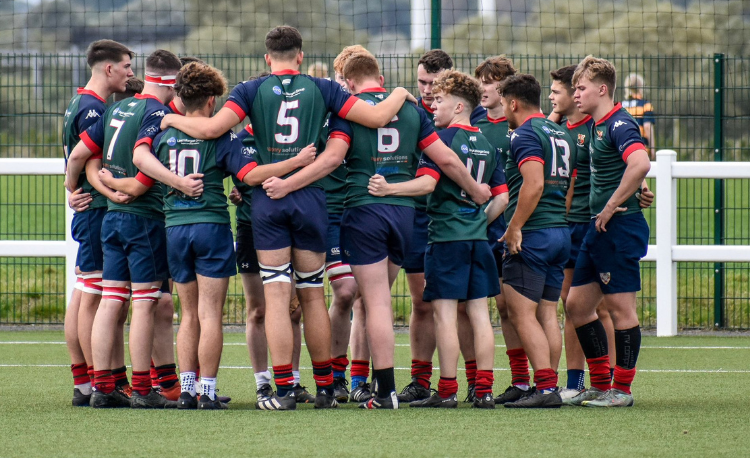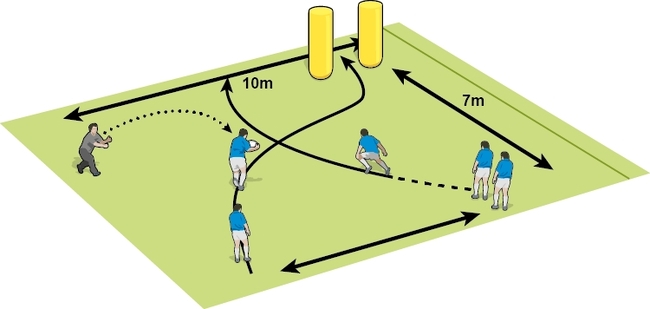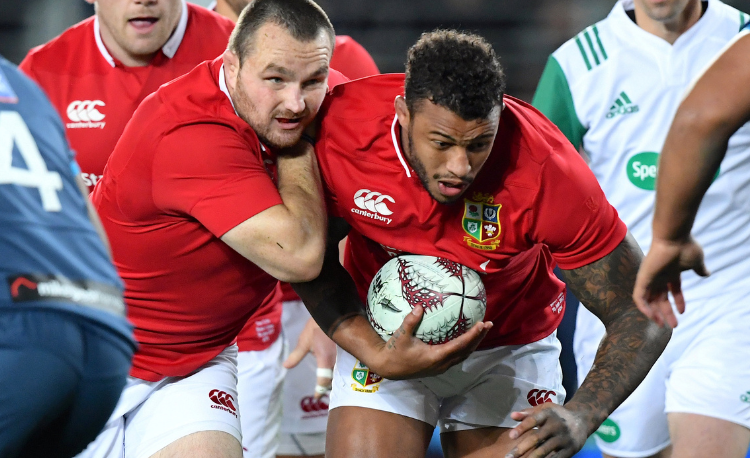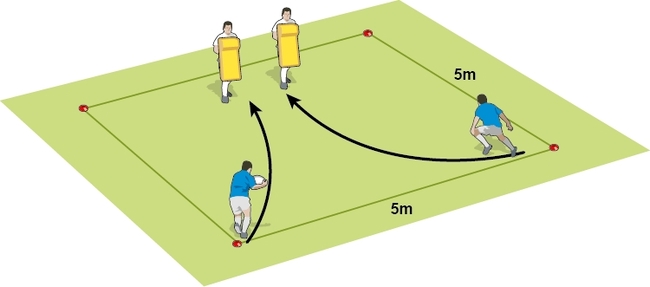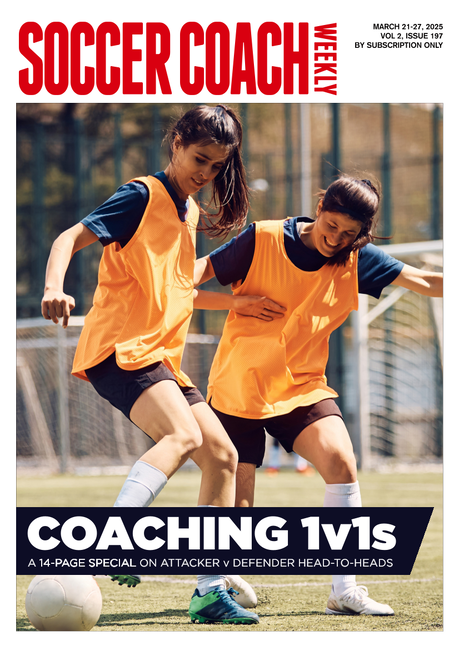New season's first session for younger players
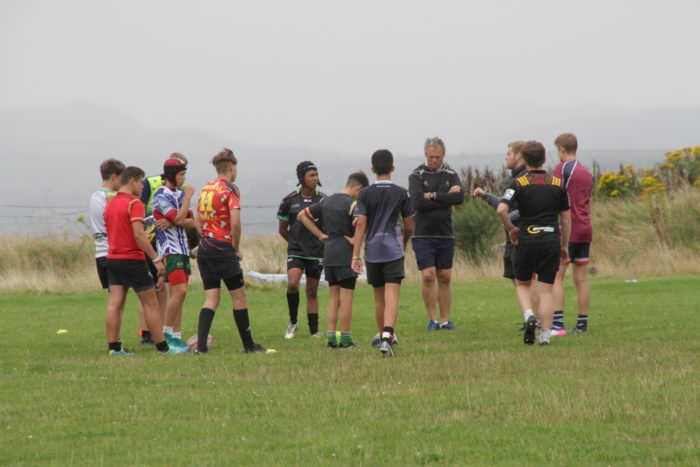
1. Plan to cover some very simple rugby outcomes
The first session is a mix of many things. New players, established players, fit players, fat players and over-excited players.
Some players may have been to rugby camps in the summer, or played rugby every day in the park with their mates. Others may have just lolled around at home in front of the TV or games console.
So, plan some realistic outcomes that match your players' needs. Think about developing a skill rather than learning a new one from scratch. For instance, with your drills:
- Handling - aim to have the players passing faster than at the start of the practice.
- Footwork - aim to have the players avoiding more contact than at the start of the practice.
- Tackling - aim to have the players getting more shoulder into the ball carrier than at the start of the practice (even in tag rugby).
- Communication - aim to have the players using more accurate calling than at the start of the practice.
2. Leave the chat, get the players moving
When the players arrive, they will be excited and eager to go. Leave any team or club "philosophy" chats or joining instructions and get the players moving around.
I find the best way to do this is to set up a game or a drill, so that players who arrive later can quickly join in too. For instance, play five pass rugby.
If the number of players increases to more than seven-a-side, you can always divide the players and run two games.
3. Enrol the first parents to help with today's admin
If you coach at a club, you'll probably find that many of the children arrive with their parents. Often, the first parents to arrive are the keenest, so use them.
For instance, you will want a record of who is at training. Particularly if the parent and the child are new to the club, ask them to sort out registration and the enrolment information. This is a great way for new parents to be introduced into the club.
Alternatively, the parent's job may be to advise parents on where to go after the game. You can then go off and concentrate on the rugby.
4. Prepare yourself mentally and physically
- Eat well, drink well and be ready for a rollercoaster ride on the first session.
- Have your own water bottle ready, because you need hydrating as well.
- Turn up far too early for the session and with more equipment than you need.
- Be in charge and stay in charge. People will need direction, you will need to give it.
For your own sanity, don't do anything complicated on day one. Stick to four activities and keep the rugby drills and exercises simple. This way, you can concentrate on the feedback as opposed to re-explaining what is supposed to be happening.
Spend five minutes on each drill, with a further five minutes of development. Have a water break and then move on.
Four drills with developments plus "admin" (explanations, feedback, water breaks) should give you around an hour's training. Add in a game at the end and you will have done a good hour and a quarter's work.
You might like to let the better players take on the more complicated roles, and challenge them by asking questions.
6. Be the coach in the session, the manager at the end
You'll probably have at least two roles - "coach" and "team manager". Try to learn to switch between these roles at the appropriate time.
It is too easy to be caught up by questions or queries, messages and greetings at the first session. You need to be the coach during the session and the manager at the end. The players - and also the parents - need to be made aware of this.
Newsletter Sign Up
Coaches Testimonials
Subscribe Today
Be a more effective, more successful rugby coach
In a recent survey 89% of subscribers said Rugby Coach Weekly makes them more confident, 91% said Rugby Coach Weekly makes them a more effective coach and 93% said Rugby Coach Weekly makes them more inspired.
Get Weekly Inspiration
All the latest techniques and approaches
Rugby Coach Weekly offers proven and easy to use rugby drills, coaching sessions, practice plans, small-sided games, warm-ups, training tips and advice.
We've been at the cutting edge of rugby coaching since we launched in 2005, creating resources for the grassroots youth coach, following best practice from around the world and insights from the professional game.


